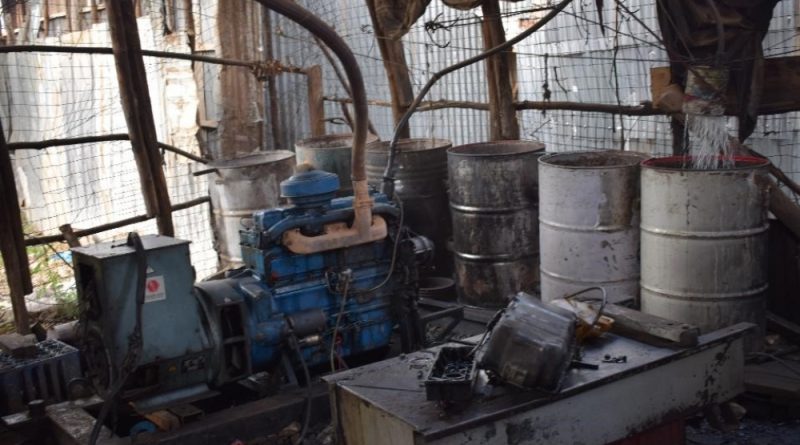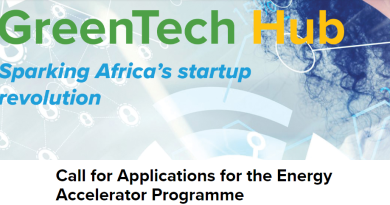Entries open for the Decarbonising Humanitarian Energy Program
The German Federal Foreign Office has officially allocated 21 million EUR to facilitate the sustainable energy transition in areas affected by displacement. The newly established Decarbonising Humanitarian Energy Programme aims to lower both the costs and greenhouse gas (GHG) emissions linked to the provision of essential humanitarian aid across five countries in the Sahel Region.
This funding serves as the foundational investment in the Multi-Partner Trust Fund (MPTF) and offers multi-year assistance to enhance sustainable energy solutions for organizations that support displaced individuals and host communities. The implementation of the DHE MPTF is managed by the GPA Coordination Unit at UNITAR, along with NORCAP and UNDP.
Currently, the majority of electricity utilized by organizations in displacement scenarios is generated from diesel generators, which the GPA Coordination Unit estimates to cost over $100 million and produce more than 200,000 tonnes of CO2 emissions globally.
This situation presents a significant opportunity for the adoption of sustainable energy solutions; however, these organizations frequently encounter challenges related to technical expertise, funding, and conducive local market conditions for implementation. The Decarbonising Humanitarian Energy Program MPTF prioritizes energy efficiency measures to first reduce electricity consumption, subsequently employing renewable energy sources to compensate for the remaining fossil fuel usage, thereby decreasing both costs and GHG emissions.
Through the Decarbonising Humanitarian Energy Program MPTF, the consortium engages energy specialists to offer technical support, formulate business cases for project sites and organizations, and finance the execution of sustainable energy initiatives. Innovative de-risking mechanisms, contractual frameworks, and green financing options are designed to assist the private sector in delivering feasible, long-term solutions for organizations, while also extending the advantages of electricity access to the affected communities.
This substantial funding from the German Federal Foreign Office is vital for advancing sustainable energy initiatives in the Sahel region and marks a significant milestone towards the realization of SDG7 in displacement contexts globally.
Derisking Sustainable Investment – Decarbonising Humanitarian Energy Program
The suggested derisking mechanism employs a two-phase strategy:
Phase One: A short-term liquidity facility would offer post-termination cash flow to the energy service company for a duration of up to 12 months. This would allow for the exploration of alternative applications for, and/or buyers of, the existing energy system to mitigate termination liabilities and provide a temporal buffer for the UN Agency to utilize the guarantee mechanism.
Phase Two: A guarantee mechanism would disburse funds to the UN to address its termination liabilities to the energy service company.
This proposed strategy effectively reduces the contractual and financial risks linked to the UN’s Termination Clause, thereby:
– Encouraging energy service companies to engage with the humanitarian sector;
– Reducing the likelihood of energy service companies imposing a premium on electricity to compensate for their contractual and financial risks; and
– Enabling the UN to delegate electricity supply responsibilities, allowing it to focus on its primary missions.
Furthermore, preliminary modeling of a sample portfolio comprising 70MW of solar projects (approximately 700 facilities) with an estimated capital expenditure of 65 million USD could be supported by a guarantee fund of merely 6 million USD. The subsequent step involves developing and testing the derisking mechanism within humanitarian contexts to facilitate the decarbonization of UN energy infrastructure through energy service contracts.
The scale of the challenge – Decarbonising Humanitarian Energy Program
The GPA Coordination Unit recently undertook a survey targeting energy experts within the humanitarian sector to assess the prevalence of diesel and petrol generators utilized for electricity generation in humanitarian operations. This initiative aims to identify potential pathways for transitioning to solar energy solutions.
Feedback from six United Nations organizations and the International Committee of the Red Cross (ICRC) indicates that there are currently over 11,000 generators in operation globally. Our preliminary conservative estimates suggest that humanitarian organizations collectively expend more than $100 million annually on fuel, resulting in the emission of nearly 200,000 tonnes of CO2. Furthermore, we project that an investment of approximately $250 million would be required to convert feasible systems to solar energy, which could yield savings of around $70 million in fuel expenditures and reduce CO2 emissions by approximately 125,000 tonnes each year. Additional details regarding this study can be found here.
Moving forward, we will focus on refining these initial estimates and investigating strategies to achieve organizational sustainability objectives by leveraging the opportunities presented by solar energy solutions. For further information about our initiatives or their potential application within your organization, please reach out to [email protected].
Application and Participation – Decarbonising Humanitarian Energy Program
- In partnership with UNDP and NORCAP, the Global Platform for Action (GPA) at UNITAR has developed a Multi-partner Trust Fund (MPTF) on Decarbonising Humanitarian Energy (DHE), with initial funding of approx. $22 million by the German Federal Foreign Office, the program will focus on transitioning from diesel-powered generators to renewable energy systems in humanitarian settings in the countries of the Sahel Region.
- The implementation will start in Niger and Nigeria in the first phase. Any organizations working in these regions are welcome to join this initiative and be part of the green transition. Please contact [email protected].





